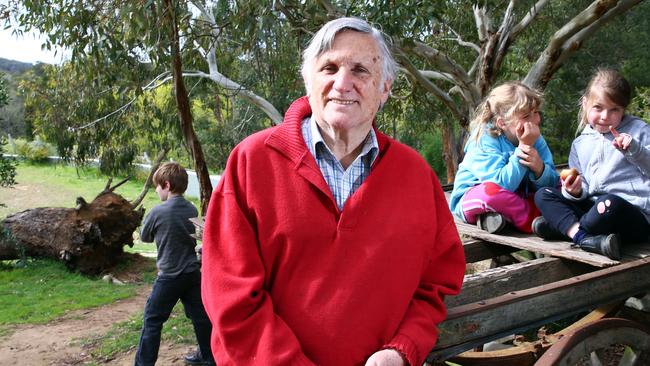Dobbing on bullies can make it worse
John Marsden has been criticised but new research suggests we’re handling bullying wrong.

New research has highlighted the challenges of helping young people deal with bullying at school, revealing that conventional advice — to tell a teacher — can make matters worse.
The study, led by Queensland University of Technology educational psychologist Marilyn Campbell, found that victims of mild to moderate bullying who sought help from a teacher reported back a year later that the bullying had ceased.
However, for students who experienced severe bullying, measured by the frequency of incidents and distress caused to the victim, seeking adult intervention was often associated with continued victimisation.
The surprise findings have coincided with fierce debate around schoolyard bullying sparked by controversial comments this week from principal and author John Marsden, who suggested that some young people were bullied in part due to their own “unlikeable” traits. Professor Campbell, who is considered an international expert in bullying and anxiety disorders in young people, accused Marsden of unfairly singling out victims for blame.
“John Marsden is promoting the classic victim-blaming argument: the implication is that if you are different, then bullying is feedback for you to change,” Professor Campbell said.
However, she agreed that the findings from her latest research, published in the Journal of Child and Family Studies this month, posed a dilemma for students and teachers. She said it might be time to review the actions that schools take for bullying interventions to be more effective.
According to the research, fewer than half of the 2000 Year 7 to 9 students surveyed — 37 per cent — reported bullying to a member of school staff, with boys who were physically bullied the most likely to speak up. For those who experienced more severe bullying, 91 per cent who told a teacher reported that they were still being bullied a year later.
Professor Campbell said it was possible that students who reported bullying were labelled “dobbers” and “further ostracised or targeted as a result”.
“I don’t think we’re prepared for the retaliation that goes on and the advice assumes that parents and teachers know how to handle the problem,” she said.
“Schools tend to punish the bullying behaviour, but what then happens to the child being bullied? Teachers assume that it has stopped but sometimes it hasn’t. It’s just that the child has become terrified of further retaliation so they don’t say anything.”
Professor Campbell said the best thing that teachers and parents could do to support a young person experiencing bullying was to listen.
“Ask them how can I help you,” she said. “They know their peer group best — especially at secondary school, where students who have been bullied already feel so disempowered. Involve them in the problem-solving.”
Marsden said bullying was complex and it was possible that some bullying went unnoticed in schools, where students often had their own subcultures that went under the radar of most school staff. As a result, policies at his schools, Candlebark and Alice Miller northwest of Melbourne, include “strategies for the bullied” designed to help students “raise his/her self-esteem through participation in school activities, and support and encouragement inside and outside the classroom” as well as “long-term strategies to improve socialisation”.
Marsden denied he was “victim-blaming” and described his schools’ approach as “common sense”: “It can be a slow process but it’s far more helpful than these slogans that get thrown at kids.”



To join the conversation, please log in. Don't have an account? Register
Join the conversation, you are commenting as Logout